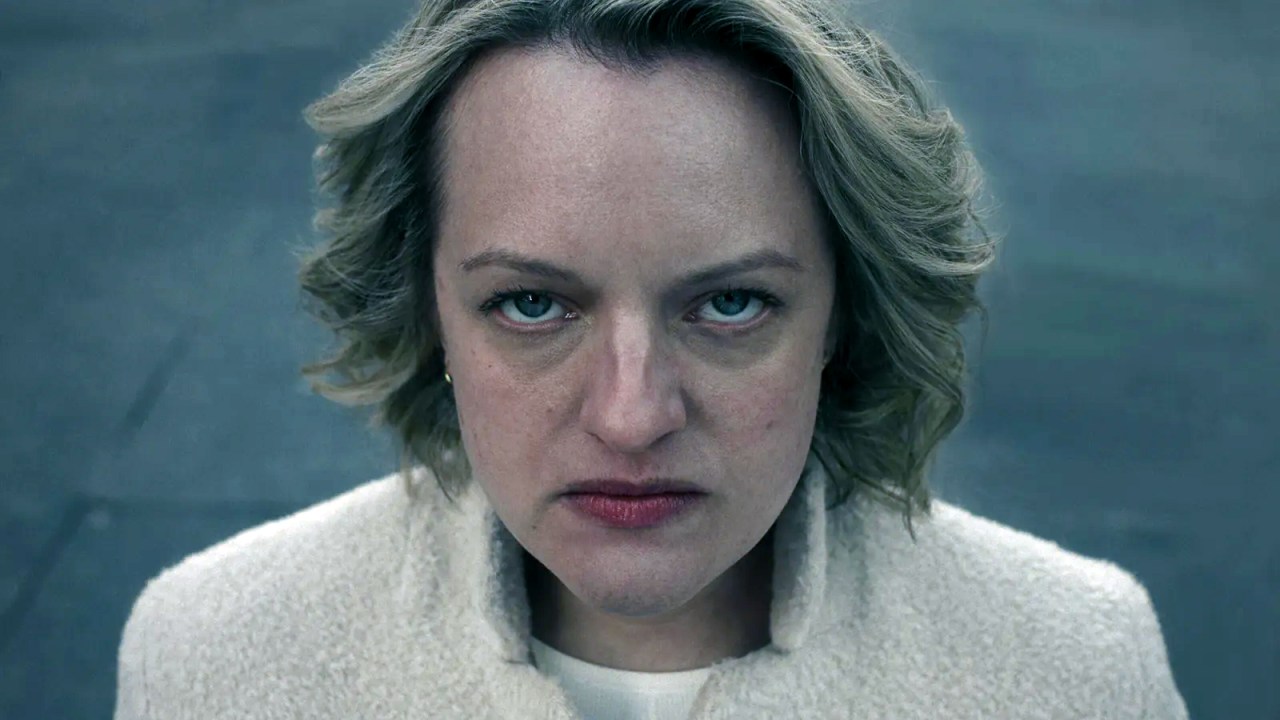
What We NEED To See In ‘The Handmaid’s Tale’ Spinoff ‘The Testaments’
The Handmaid’s Tale has come to an end, but luckily, Hulu’s spinoff The Testaments is on its way.
Based on Margaret Atwood’s award-winning sequel novel, the new series promises to expand the Gilead universe years after the events we’ve been watching. After enduring June’s endless trauma for five seasons, fans are excited and nervous about revisiting this dystopian world. Based on spoilers from Atwood’s book, here’s a list of what fans hope to see when Hulu returns to Gilead.
Aunt Lydia’s Redemption Arc
Fans can’t wait to see Ann Dowd sink her teeth into Aunt Lydia’s complex evolution from Gilead’s terrifying enforcer to its secret undoing. Viewers want to witness the exact moments that crack her loyalty, the private realizations that make her question everything, and the suffocating tension of maintaining her fearsome public persona while documenting atrocities at enormous personal risk. No one’s expecting a clean redemption either — most fans understand her hands are permanently stained with blood, and no amount of resistance work erases that, which is precisely the moral ambiguity that makes her character so fascinating. Will the show be brave enough to keep her redemption messy and complicated? Devotees of the series desperately hope so.
Hannah/Agnes’s Evolution
Viewers have yearned for years to see Hannah become more than just June’s motivation for suffering, and now they’re desperate to watch her develop from brainwashed Gilead daughter into a fully realized person with her own thoughts, feelings, and eventually, rebellion. The audience is praying the show avoids cheap epiphanies, instead letting Hannah’s awakening come through accumulating doubts — noticing contradictions between what the Commanders preach versus how they behave, or forming unexpected bonds with people who slip and mention forbidden knowledge about the before-times. The most devoted fans want to feel genuine internal conflict as Hannah/Agnes grapples with betraying the family who raised her versus discovering her true origins — that tension between her Gilead identity and buried past could deliver some of the most emotionally complex television we’ve seen from this dystopian universe.
Nicole/Daisy’s Role and Connection to Gilead
For years, viewers have wondered about Baby Nicole’s fate after her dramatic escape to Canada, and now they’re eager to see her grown up as Daisy, blissfully unaware of her past until the truth shatters her world. The audience is hungry for scenes showing the stark differences between the sisters when they meet — Agnes knowing Gilead’s horrors from within but carrying its indoctrination, while Nicole/Daisy brings outsider courage paired with dangerous naivety about the system she’s infiltrating. Fans are particularly anxious to see Nicole’s infiltration portrayed with the bone-deep terror it deserves—she wasn’t raised in this hellscape, so the visceral shock of experiencing it firsthand should be overwhelming, not some heroic adventure but a constant nightmare of fear and discovery. Devoted viewers want this mission to feel genuinely perilous, with Nicole constantly one wrong word away from execution as the infamous “kidnapped baby” from Gilead propaganda.
The Fall of Gilead
If there’s one thing fans are absolutely desperate to see after five grueling seasons of minimal progress, it’s Gilead finally, genuinely crumbling. Viewers don’t want this downfall to happen through one convenient assassination or explosion—they’re hoping for a death by a thousand cuts where economic sanctions finally strangle the regime, Commander factions turn on each other like rabid dogs, resistance cells connect across regions, and the international community finally brings meaningful pressure. The audience yearns to watch those powerful men scramble as their house of cards collapses, proving that even the most brutal regime has fatal weaknesses just waiting to be exploited. That catharsis of seeing Gilead’s leaders face consequences after years of inflicting unchecked cruelty? It’s the payoff viewers have been waiting for since episode one.
June Reuniting with Her Daughters
The emotional climax every fan wants is June potentially reuniting with BOTH daughters after everything she’s sacrificed, but viewers want this handled with emotional honesty, not cheap sentimentality. Most understand these reunions shouldn’t happen easily or quickly—years of separation and drastically different experiences mean they’re essentially strangers. Audiences expect Agnes might initially reject her birth mother or feel conflicted loyalty toward her Gilead parents, while Nicole grew up with no actual memory of the mother who’s become a resistance legend. Devoted viewers want space for these relationships to develop naturally — from awkward, halting first meetings to something that acknowledges their shared blood while respecting their separate journeys, with no saccharine family hugs five minutes after meeting that would cheapen everything that came before.
Resolution for Key ‘Handmaid’s Tale’ Characters
Viewers haven’t just invested in June — they’re emotionally attached to Janine’s heartbreaking resilience, Moira’s fierce determination, Luke’s exile struggles, and Nick’s dangerous balancing act, and they’re anxious to learn these characters’ ultimate fates. Did Janine finally find peace or did her fragility ultimately break her? Did Moira’s activism change Canadian policy? Did Luke ever reconcile with June’s transformation? Did Nick’s covert resistance work pay off or cost him everything? The audience doesn’t expect tidy endings for everyone — some should find peace while others pay terrible prices, because revolutions aren’t fair — but they do want resolutions that honor the depth these characters brought to the original series, even if they’re only mentioned in passing or appear briefly in the new timeline.
The Pearl Girls and Aunts’ Inner Workings
Fans are fascinated by elements from Atwood’s sequel that weren’t in the original show, particularly the Pearl Girls — young missionary women recruiting abroad — who reveal Gilead’s propaganda machine in action, and the Aunts’ shadow government with their secret libraries and meticulous record-keeping. These female-focused aspects show how authoritarianism works beyond just violence, with viewers eager to see young women voluntarily signing up for Pearl Girl assignments (more disturbing than straightforward oppression) and the Aunts exploiting tiny gaps in male authority to build hidden influence networks. This fresh material that expands understanding of how Gilead actually functions is exactly what dedicated viewers want from a spinoff, especially if it shows how women aren’t just victims but sometimes willing participants or even architects of oppression.
What Happens After Gilead
Audiences are curious about what happens AFTER toppling a theocratic regime — a fascinating aspect barely touched in the original series. Fans want the messy problems of reintegrating refugees, addressing war criminals, healing generational trauma, sorting property claims, and rebuilding democratic institutions from scratch. They’re interested in citizens who might resist reintegration, having known nothing beyond Gilead, Handmaids struggling with freedom after years of captivity, political factions clashing over forgiveness versus justice, and families navigating impossible emotional hurdles after being torn apart and reassembled. These social problems mirror actual post-authoritarian situations worldwide, and viewers hope the show will explore them with the same unflinching honesty as the original series — no fairytale ending where everything’s suddenly perfect, but a realistic portrait where Gilead’s scars linger for generations.











